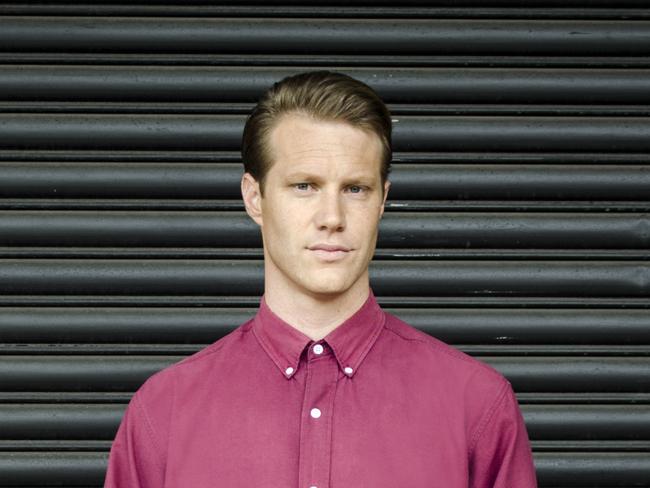Opinion: ‘You expect Neo-Nazis to be bastards, you don’t expect hipsters to be’
ANALYSIS has proven there is a clear bias when it comes to social media. It is why we can’t let opinions online dictate our society.
OPINION
WE’VE sure learned a lot about our politicians recently: Nick Xenophon is part Briton, Matt Canavan is part Italian and Pauline Hanson is part Taliban.
But hidden deep beneath the dual citizenship farce is a little kernel of truth about our nation, possibly about the whole world, that is darker and more dangerous than the All Blacks.
While the dual citizenship debacle was going on, news.com.au asked a data analysis firm to compile the sentiment on social media — especially Twitter, the town hall of the 21st century.
The results were staggering.
It has long been the bugbear of conservatives and the conspiracy theory of the alt-right that Twitter is biased towards the left.
To some extent this is obvious to any reasonably balanced observer — and not in itself a bad thing. All people, and the media they use, have the right to freedom of expression.
But the data gathered by the global firm Meltwater is perhaps the most fascinating proof yet of just how extreme the bias is.
The analysis was first conducted in July over the period that Greens senators Scott Ludlam and Larissa Waters resigned from parliament over their dual citizenship, Nationals senator Matt Canavan stepped down from cabinet and One Nation senator Malcolm Roberts was busted for the same thing.
Then when the Barnaby Joyce bombshell dropped, another round of analysis was done to gauge the reaction to that.
The first key finding of the report says it all: “Positive social sentiment was only generated in relation to the former Greens senators.”
In fact, when it came to Scott Ludlam – the first to fall – there was actually more positive reaction (20.2 per cent) than there was negative (14.6 per cent), the remaining 65.1 per cent being neutral.
For Larissa Waters, who if anything had a stronger case for not knowing she was a dual citizen, there was a 22.4 per cent negative response but still a 14.8 per cent positive response.
Both these senators were born overseas and knew it but sympathy still overflowed. How understanding the commentariat can be.
However for Canavan, a Nationals MP born in Australia whose mother supposedly signed him up for Italian citizenship after the fact — or maybe even not according to the latest argument — there was literally no sympathy at all out of 5473 mentions. Zero, zip, zilch. Social media was 20.8 per cent negative and the rest neutral.
Likewise for Roberts, who is no stranger to extreme sentiment, it was 24 per cent negative and 76 per cent neutral with not a single positive comment.
And for Joyce, the Australian-born deputy prime minister who unknowingly inherited New Zealand citizenship via his father, the result was virtually the same. Out of a whopping 22,689 mentions, 24.6 per cent were negative compared to just 0.4 per cent positive.

For the Turnbull government overall the story was even more bleak. There was literally no positive sentiment at all, with 24.7 per cent negative and the rest neutral. No wonder they are desperately trying to kill off this issue before it kills them.
Again, there is of course nothing wrong with this. An obvious response is: “But Twitter isn’t representative of society!”
And that is exactly the point. It’s when social media gets mistaken for being a political barometer that public debate on big issues can often get distorted.
Indeed, what is most distressing, especially for those of us who want the world to be a fairer place, but also retain some common sense, is when progressive causes get hijacked by extremists and even the most reasonable positions get shouted down as extremism by the very extremists they’re trying to calm.
Confused? Here’s an example.
One night last week I was puzzled to see the name of Triple J presenter Tom Tilley trending on Twitter and clicked on it to see why. Apparently, in a segment about the infamous and ultimately tragic clash between Neo-Nazis and left-wing activists in Charlottesville Virginia, he had interviewed a white nationalist to see what they were all so upset about.
For this most basic of journalistic exercises Tilley was roundly condemned as a Neo-Nazi sympathiser. And if the ABC’s youth radio station was now the new hotbed of white supremacy I knew I had a story on my hands.

One prominent tweet that popped up joked about whether he should be killed – to which many responders enthusiastically offered both endorsement and methods.
Obviously I did not think it likely that Tom Tilley would be literally shot dead by a millennial lynch mob but it still seemed a pretty strange reaction to a guy whose only crime was to take a phone call from an arsehole.
“Wow,” I said, quoting the tweet. “Tom Tilley is getting death threats because he interviewed a Neo-Nazi dickhead? Outrage just ate itself.”
Little did I know the outrage had only just begun. By the time it ended I had met a lovely young lady who told me my wife was currently fellating her boyfriend – an act which, I would have thought, reflected poorly on both of us.
Clearly I am not up to speed with millennial humour.
I was also told that to suggest the original deathly tweet was a tad over the top was in fact a form of bullying. Lord knows how poor Tom Tilley must feel, wherever his body now lies.
But before the obvious backlash to the backlash to the backlash I’ve no doubt already started by criticising the backlash, please don’t get me wrong: I’m not crying foul or saying anyone should be silenced. I’ve made plenty of bad jokes about plenty of good people.
It is however odd that there is such violent language in politics – and in some cases actual violence – that even when someone suggests it’s gone a bit far they are accused of violence by the very people who claim to be denouncing violence.
Because that’s what is most disconcerting about the new left: You expect Neo-Nazis to be bastards, you don’t expect hipsters to be.
I say all this as someone who came from the old left and who is now deeply troubled by what it has become. I thought it was all about helping poor people and having a good time. Turns out it’s all about finding new ways to be offended and shouting people down.
But maybe it was always like this and it is here I must make a full confession: I was the ultimate activist cliché myself. I was a card-carrying student socialist at one of the most elite universities in the country. Oddly, I was one of the few there who had grown up poor and gone to a public school but I was later to learn that I was an oppressive vessel of white male privilege.
A few red flags went up during that time, both literally and metaphorically.
One was when I was a marshal at a march against voluntary student unionism and had to pull one of our guys away from shouting and spitting in the face of a cop. The officer was just standing there, rigid as a Buckingham Palace guard, one of countless cops who just happened to be rostered on and deployed solely to give us safe passage down the very street we were marching along. Our working class warrior ran up to abuse him for it.
Another was when I was a weird kind of “liaison” officer during an occupation of the university admin building, the weirdness being that I didn’t even know it was going to be occupied. Or maybe someone told me and I was just too stoned to remember.
At any rate, while some of the occupiers sat on the floor and took endless votes about how to protest next, others ransacked the offices and threw random documents out the window.
For the life of me I did not know then — and still don’t today — what purpose this served. We were supposed to be protesting against fees for degrees. Now it just felt like a book-burning.
At one point I remember being on the ground underneath the building as the papers rained down, trying to negotiate with the university’s registrar.
“You’ve got to make them stop,” he said.
“That’s the whole problem,” I replied. “I can’t.”
Just then a small horde tore past and invaded the Law Library. Apparently the next step in the campaign was to tear up old texts about tort reform.
Of course, as history shows, it didn’t change much. The only difference was some underpaid cleaner had to fix everything up again and an underpaid clerical worker had to pick up all the documents. And some poor cop had to go home and probably not tell his missus that someone had spat on him that day.
Power to the people indeed.
It’s hard not to feel the same way about the mobs who are going around defacing and tearing down historical monuments in the United States because they object to the history they represent — as nauseating as that history might be.

As I have said before, reaching back through time and erasing remnants of past sins is the worst kind of historical whitewashing. And it is deeply ironic that it is now being perpetuated not by fascist dictators but by those who claim it is precisely those dark pasts which ought to be remembered.
This is a cause as perverse as it is pointless. We need to be reminded of what our society is built on, both good and bad. Indeed, if anything, especially the bad.
It is also important those issues are represented in the public sphere. When one walks past the icon of a liberator or a tyrant one is obliged to reflect upon the bones underfoot. The statue of Oliver Cromwell outside the UK Houses of Parliament is an invitation to conflicted thought.
If that means building more statues of the oppressed then let us do that, but tearing down statues of oppressors a century after their deaths isn’t freedom, it’s censorship.
It is also, to counter a tired argument, entirely different to liberated peoples tearing down images of the oppressors in the here and now. The question is not whether we should have torn down that statue of Saddam Hussein in 2003 but whether, should it so improbably survive, it should be torn down in 2103.
If this is a concept too complex for people to grasp, here is a handy rule of thumb: If everyone involved is long dead, it’s history and you should probably leave it alone. If the guy in the statue is still killing people, feel free to knock it over.
In my younger days I may well have been persuaded to knock over statues of the living and the dead with equal abandon. Fortunately, I grew out of it.
And probably the majority of angry activists out there today will grow out of it too. Wiping out history becomes a little less appealing when you have more of it behind you than in front of you.
The difference between then and now is that these days those youthful destructive impulses no longer sit in our pasts. The limitless lateral reach of social media means that what was once a phase we all went through is now a wave that can be unleashed across continents.
And, once all our mistakes are tallied and we face our final reckoning, I wonder what we’ll regret more: The things we tore down or that last angry tweet.




